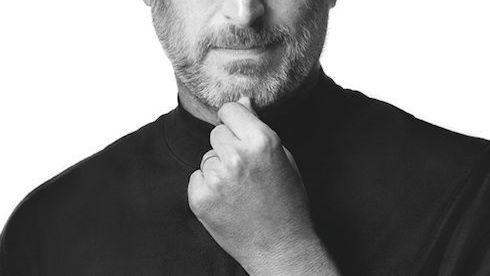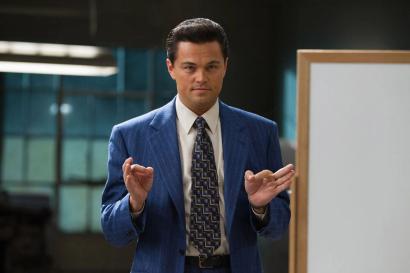

Steve Job’s 10 career commandments
Words: Gentleman's Journal
Was Steve Jobs one of the most successful businesspeople of all time despite his ‘foibles’ or, perhaps, because of them? And how much – if anything – can the ambitious, career-driven, but more ‘normal’ man learn from his example? Here, we take a look at 10 of the defining elements of his life and work and consider whether a gentleman should follow suit.
1) DROP OUT OF COLLEGE
Jobs’ biological parents – a Muslim Syrian father and Catholic mother of German extraction who met at the University of Wisconsin – were forbidden from marrying by his birth mother’s father. As a result, he was put up for adoption and taken in by a working-class couple from the Bay Area of San Francisco. However, his birth mother insisted on a condition: he would one day go to college., After graduating from high school, Jobs enrolled at Reed College, an expensive liberal arts university in Portland, but – like other tech entrepreneurs Bill Gates, Mark Zuckerberg and Michael Dell – he dropped out.
Was it a move that helped him get a head start in the fast-moving world of tech? Not according to Jony Ive biographer Leander Kahney. “It’s a myth,” he says. “There are a few outliers, but most CEOs, most people within the tech industry got their degrees. Many of them even went to graduate college and went on to get a PhD as well.”
2) FIND A FOIL
Steve Jobs might have always had his now-legendary powers of persuasion; the ability to generate what became known as his “reality distortion field”. But as a 20-year-old college dropout working in his parents’ garage in the mid 70s, he couldn’t lay Apple’s foundations by himself. The lion’s share of technical wizardry for Apple’s first major creation, the Apple I, came from his co-founder Steve Wozniak.
“His partnership with Wozniak was what allowed him to build the company in the first place,” says Kahney, who is also editor-in-chief of the Apple-focused news website Cult of Mac. “Then, his partnership with Jony Ive allowed him to turn it into this monster, this giant hit factory. He had a reputation as a lone wolf, but he was always a good collaborator.” And that, luckily, is something that anyone can learn to do.
3) WATCH YOUR BACK
By the early 80s Apple had enjoyed such success that the company was preparing to go public. As a result, Jobs was worth $100 million when he was just 25, but he found himself spending too much time managing elements of the business that didn’t interest him. His solution was to draft in a new CEO and in 1983 he poached John Sculley from Pepsi with the immortal line: “Do you want to spend the rest of your life selling sugared water, or do you want a chance to change the world?”
1984 saw the release of the Macintosh – a genuine breakthrough, and the first personal computer to have a graphical user interface that was controlled with a mouse. But, at $2,495, it was hugely expensive and ended up being a commercial failure. Jobs’ vision of Apple’s future began to “diverge” from that of the board – now led by Sculley – and by 1985 Jobs was out.
4) WORK OUT WHAT YOU’RE GOOD AT
During his 13-year exile from the organisation he founded, Jobs started two more companies, NeXT (a hardware and software business that would have limited success) and Pixar, which started life as a spin-out from Lucasfilm’s computer graphics division. Jobs used $10 million of his own money to set up the new company in 1986, but it wasn’t until 1995 that its first smash hit, Toy Story, was released in cinemas.
It would go on to have many more but, according to Karen Blumenthal, author of Steve Jobs: The Man Who Thought Different, Jobs’ real success was working out where both he and the company could excel. “He learned how to not do it all himself. It’s been described to me that he was more like a venture capitalist or a consultant at Pixar. He was involved, but he was letting [the employees] do the work. That was not true during his first spell at Apple.” Blumenthal adds that learning to take a backseat made him “filthy rich”.
5) SEE THE BIGGER PICTURE
When Jobs returned to Apple in 1997, he struck a controversial deal with Bill Gates that would see Microsoft – which had been winning its pitched battle with Apple for several years – commit to producing versions of Internet Explorer and its Office software for Macs. “That was important psychologically,” says Kahney, “and because a platform is impotent without applications. He did a very good job of persuading Microsoft to come along to what was a tiny little platform that didn’t look like it was going to survive – it was charm, charisma and a little bit of bullying.”
6) BE THEATRICAL
The image that comes to most people’s mind’s eye when they think of Steve Jobs is probably one of him standing on stage, delivering a presentation about his company’s latest and greatest innovation while wearing his trademark glasses, black polo-neck and jeans. Even his choice of clothing was a masterclass in branding. The efforts to minimise any leaks to press before the big ‘reveal’ heightened excitement further. The carefully choreographed presentations and films turned the product launches into international media events. “He learned very early on that the theatrical stuff worked,” says Blumenthal. “He could present and market products in a way that was truly a gift. And he got better and better at it.”
7) DEMAND EXCELLENCE
When Jobs was presented with the first prototype of the iPod, he took it in hand and looked at it for a while before saying: “it’s too big”. The engineers who had worked so hard to compress it into the smallest size possible tried to defend their work, but Jobs was unimpressed. To prove his point, he walked over to the fish tank in the corner of his office and dropped the device into it. Motioning towards the bubbles that escaped, he said: “that means there’s still some space in it.” And that was the end of that. “For all the junk people had to put up with, they did good work for him,” says Blumenthal. “He had that vision. But what you don’t know is the great people he never got or missed out on because of what he did. Some of the things were really mean-spirited.”
8) DON’T BE AFRIAD TO TWEAK… OR EVEN STEAL
In an essay published in the New Yorker shortly after Jobs’ death in 2011, Malcolm Gladwell pronounced that he was not so much a visionary who had made great quantum leaps by himself. Instead, he was a ‘tweaker’ in the style of key figures of the industrial revolution who took a significant invention and improved it. After all, Apple hadn’t invented the smartphone. They’d merely made it better. They hadn’t invented the mouse-controlled graphical interface of the Macintosh either – that had come from Xerox. Even his Apple colleague Jony Ive once said that Jobs would “go through a process of looking at my ideas and say, ‘that’s no good. That’s not very good. I like that one.’ And later I will be sitting in the audience and he will be talking about it as if it was his idea.”
9) BE SINGLE-MINDED
“Single-mindedness is a characteristic of the most successful entrepreneurs, the top lawyers and investment bankers,” says Karen Blumenthal. But, she warns, “there’s a trade-off”. For Jobs, that seems to have materialised as a tendency to treat many of his personal relationships and interactions as unimportant. He demanded a paternity test when his former partner Chrisann Brennan claimed that he was the father of their daughter, Lisa. Even when the test showed that he was Lisa’s father, Jobs seemed intent on doing the bare minimum to support his daughter and the mother of his child. There are other stories – about his treatment of a police officer, an Apple copywriter, and a public relations worker. Rudeness and spite are frequently recurring themes., Even Lauren Powell, the mother of three of his four children, admitted: “there are parts of his life and personality that are extremely messy, and that’s the truth.” But she also stayed with him for 20 years, right up until his death.
10) REMEMBER, YOU’RE GOING TO DIE
In 2005, about a year after he was first diagnosed with cancer, Jobs gave a commencement address at Stanford University. He told students: “I have looked in the mirror every morning and asked myself: ‘if today were the last day of my life, would I want to do what I am about to do today?’ And whenever the answer has been ‘no’ for too many days in a row, I know I need to change something., “Remembering that I’ll be dead soon is the most important tool I’ve ever encountered to help me make the big choices in life. Because almost everything – all external expectations, all pride, all fear of embarrassment or failure – these things just fall away in the face of death, leaving only what is truly important.”
But, Blumenthal points out, when Jobs really was close to the end, he barely took a backward step. “Faced with illness,” she says, “he went back to work. Is that a choice you’d make?”
By Edwin Smith.


